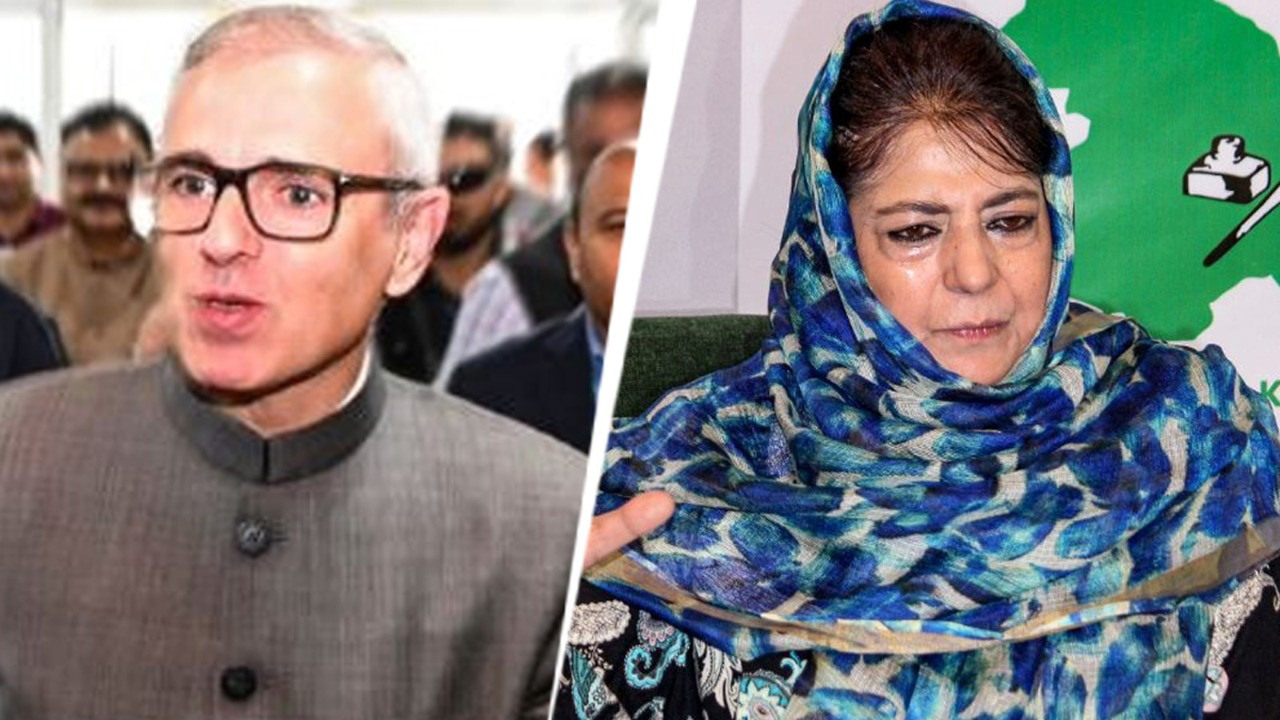Omar Abdullah vs Mehbooba Mufti: The Political Storm Over Kashmir’s Water Resources
A Heated Debate Over Kashmir’s Water Rights
The political landscape in Jammu and Kashmir has once again been shaken by a fierce debate between Chief Minister Omar Abdullah and PDP President Mehbooba Mufti over the Tulbul Navigation Project and the Indus Waters Treaty (IWT). The controversy erupted after India suspended the Indus Waters Treaty following the Pahalgam terror attack, leading Abdullah to advocate for the revival of the Tulbul Navigation Barrage. Mehbooba Mufti, however, has strongly opposed Abdullah’s stance, warning against “weaponizing water” amid ongoing tensions between India and Pakistan.
This debate has sparked political, diplomatic, and environmental concerns, with both leaders presenting contrasting arguments on the future of Kashmir’s water resources.
Background: The Indus Waters Treaty & Tulbul Navigation Project
The Indus Waters Treaty (IWT): A Historic Agreement
The Indus Waters Treaty, signed in 1960 between India and Pakistan, was brokered by the World Bank to regulate the sharing of water from the Indus River system. Under this treaty:
- India controls the eastern rivers – Sutlej, Beas, and Ravi .
- Pakistan controls the western rivers – Indus, Jhelum, and Chenab.
- India can use the western rivers for limited purposes – irrigation, hydroelectric power, and navigation
While the treaty has prevented major conflicts over water, critics argue that it unfairly restricts India’s access to its own water resources, particularly in Jammu and Kashmir.
The Tulbul Navigation Project: A Long-Stalled Development
The Tulbul Navigation Barrage, proposed in the 1980s, aimed to regulate water flow in Wular Lake and improve navigation on the Jhelum River. However, the project was halted due to objections from Pakistan, which claimed it violated the Indus Waters Treaty.
The project’s revival could:
- Enhance water storage capacity in Wular Lake
- Boost navigation and trade along the Jhelum River
- Improve hydroelectric power generation in Kashmir
Despite its potential benefits, the project remains politically sensitive, with Pakistan viewing it as a violation of water-sharing agreements.
Omar Abdullah’s Stand: Reviving the Tulbul Project
Advocating for Water Rights
Omar Abdullah has long criticized the Indus Waters Treaty, calling it “the most unfair document” for the people of Jammu and Kashmir. He argues that India’s suspension of the treaty presents an opportunity to resume work on the Tulbul Navigation Barrage, which could:
- Allow J&K to use its own water resources for navigation and power generation
- Reduce dependency on external energy sources
- Boost economic development in the region
Countering Mehbooba Mufti’s Concerns
Abdullah has dismissed Mehbooba Mufti’s warnings as political opportunism, accusing her of appeasing Pakistan rather than advocating for J&K’s interests. He insists that reviving the Tulbul Project is not warmongering, but rather correcting a historic injustice.
Mehbooba Mufti’s Opposition: Warning Against “Weaponizing Water”
Concerns Over Regional Stability
Mehbooba Mufti has strongly opposed Abdullah’s proposal, calling it “dangerously provocative”. She argues that: Using water as a political tool could escalate tensions with Pakistan
- J&K has already suffered enough due to India-Pakistan conflicts
- Water should be used for life, not as a weapon
Accusing Abdullah of Political Opportunism
Mufti has accused Abdullah of exploiting the treaty suspension for political gain, reminding him that his grandfather, Sheikh Abdullah, once advocated for J&K’s accession to Pakistan before aligning with India. She insists that the PDP has consistently upheld its commitments, unlike Abdullah’s party, which has shifted loyalties based on political expediency.
Political & Diplomatic Implications
Impact on India-Pakistan Relations
The revival of the Tulbul Project could:
- Strengthen India’s control over water resources in J&K
- Trigger diplomatic tensions with Pakistan
- Lead to international scrutiny over India’s water policies
Public & Expert Reactions
While some experts support Abdullah’s stance, arguing that J&K should have greater control over its water, others warn that scrapping the treaty could destabilize the region. Public opinion remains divided, with many Kashmiris concerned about the potential fallout.
Bottom-Line: The Future of Kashmir’s Water Resources
The political battle between Omar Abdullah and Mehbooba Mufti highlights the complexity of water rights in Jammu and Kashmir. While Abdullah sees the Tulbul Project as an opportunity, Mufti warns against provoking further instability.
As India navigates its relationship with Pakistan, the fate of the Indus Waters Treaty and Kashmir’s water resources remains uncertain. Whether the Tulbul Navigation Barrage will be revived or remain a political flashpoint is yet to be seen.



